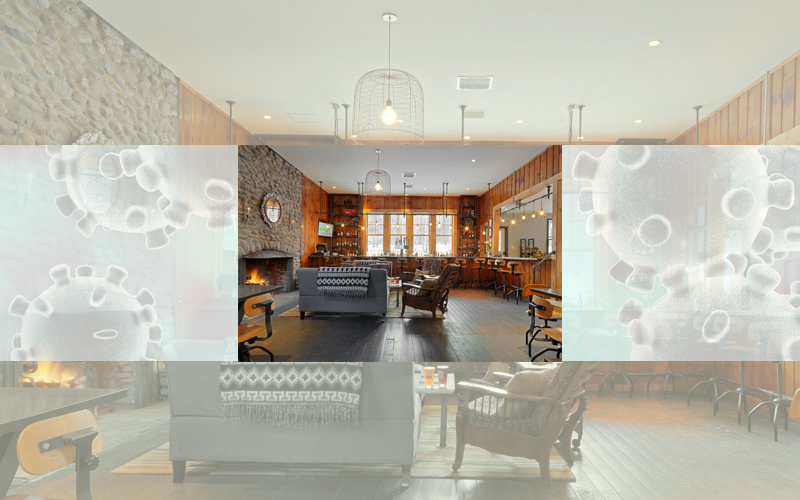(Editor's note: The Mad River Barn is not closing. This business, like many other local restaurants and inns, is working on how to reopen for guests and diners as the state eases the restrictions. Business owners Andrew Lynds and Heather Brown are committed to the business and their customers and to those planning a wedding at the Mad River Barn. Andrew Lynds is not seeking medical treatment. His business partner and former wife Heather Brown's partner is pursuing medical treatment in Vermont.)
At Mad River Barn in Fayston, business partners Heather Brown and Andy Lynds anticipate losing 75 to 100% of their wedding venue revenues this year because the state has been unable to provide future guidance on the size of gatherings that can be held due to COVID-19.
Since purchasing the business seven years ago and undertaking extensive renovations to the house on site, the main inn building, the restaurant and the annex building, they turned the business into a very successful restaurant, lodge and, with the addition of the pavilion, a wedding venue.
When businesses were first closed due to COVID-19 in March, Mad River Barn shut its doors and made its walk-in cooler space available for restaurants to donate food to the food shelf as needed.
“Those massive distributions didn’t happen. The community had planned really well and we didn’t need it. Just like we planned for hospital surges, but they weren’t overrun,” she said.
LIMITED STAFF
The business stayed closed until May 1 and then brought back a limited amount of staff thanks to a Payroll Protection Plan loan that was part of the first federal CARES stimulus package.
Because the restaurant and lodge were closed, those employees have been doing projects, yard work, cleaning and other maintenance. The PPP loan allows them to pay their employees and cover their mortgage interest, she said.
They recently started offering takeout pizza, she said, to allow the chef a creative outlet, but said there’s no margins for takeout.
Brown said that as a consequence of the shutdown, she and Lynds won’t get paid for 2020 and only one of them can get paid in 2021.
“I’m going back to work in the software industry and will be working from here for the next 12 to 18 months while my partner, Jay, completes medical treatment and then moving to Florida. We’re restructuring the business and our service model,” she said.
LIMITED EVENTS
Vermont’s Act 250 law plus other permitting regulations limit the number of events that Mad River Barn can host each year, and the COVID closure, she said, “puts us back one full year for 40% of our revenue. Our fixed costs remain the same. We’ll operate this year at a huge loss and it’s going to be tough to make that up,” she said.
Brown said that the impact of the political climate in Vermont on their ability to run a successful business was significant. She cited a minimum wage law that increased front-of-the-house hourly wages by 50 percent which means that front-of-the-house workers (receiving tips) are earning an average of $49 an hour which can’t be shared with back-of-the-house employees.
“That’s one reason why Vermont has not turned out to be a good place for us. The Legislature doesn’t understand the reality of running a business and thinks that business is bad and that business owners are bad,” she said.
“Those kinds of things should be considered in policies and they’re not, which have catastrophic downstream conditions,” Brown said, noting that Governor Scott’s failure to communicate midrange plans made things all the worse.






